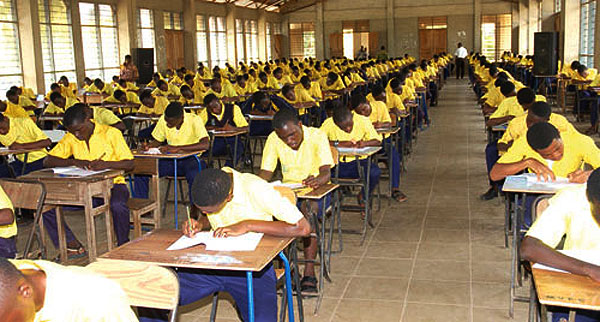The provisional results of the 2020 WASSCE show, on average, a 12.7% increase in performance compared to the 2016 results, a comparative study of the core subject s results from 2016-2020 has shown.
The data analysed by the acting Director General of the National Council for Curriculum and Assessment (NaCCA) Dr Prince Armah and the Director General of the Ghana Education Service Dr Kwasi Opoku Amankwaa also shows that 50% of the approximately 342,500 candidates who wrote the WASSCE, which is over 150,000, are likely to qualify for tertiary education (i.e. obtain the Grades A1-C6 in their best six subjects including the English, Mathematics and Integrated Science).
“The analysis shows that the 2020 WASSCE performance is up to standard and compares well with the 2019 performance as well,” the study stated.
Background
With the implementation of the free Senior High School education policy with its initial challenges, there were concerns about the quality of education and its likely adverse impact on the quality of results it will churn out.
Some civil society organizations were vehement in their criticism of the policy, insisting it will produce bad results if not reviewed.
With the outbreak of the COVID-19 pandemic exacerbating the situation during the period of the 2020 WASSCE, it was feared the pandemic would have also a psychological impact on the performance of the students.
It was therefore not surprising that the 2020 WASSCE results have received widespread interest from students, parents, civil society, politicians and educationists as well.
WAEC Data
According to WAEC, there were improvements in the performance of candidates at Grades A1 to C6 in English Language and Mathematics (Core) in 2020 as compared to 2019;
“English Language – 48.96% in 2019 to 57.34% in 2020
Mathematics (Core) – 65.31% in 2019 to 65.71% in 2020
On the other hand, Integrated Science and Social Studies recorded a decline in the performance of candidates at Grades A1 to C6 in 2020 as compared to 2019 as follows:
In Integrated Science – 63.17% in 2019 to 52.3% in 2020
Social Studies – 75.43% in 2019 to 64.31% in 2020.
This prompted a comprehensive analysis of the results from 2016 to 2020 by the two policy makers.
The analysis in part suggested that but for the introduction of the free SHS in 2020 which implemented an extended basic education system, the dropout rate from primary to SHS would have increased to the millions.
Already the Education Management Information System (EMIS) data, 2010-2017, from the 2010/11 to 2016/17 academic years shows that out of a total of 4,000,000 pupils who started primary school, only 500,000 students were enrolled in senior high indicating that a significant majority of students (i.e., 3,500,000 students) could not gain access to senior high school.
Also the Ghana Living Standard Survey showed that at least 20% of the poorest households were at an acute disadvantage of accessing secondary education, a percentage which made the free SHS programme a necessity.
Three years into the implementation of the Free SHS policy, the data suggested that “with regard to the percentage of candidates obtaining the tertiary education qualifying grades (TEQG) (A1-C6) in the core subjects, this year’s WASSCE results is one of the best in the last five years. Comparing the percentage of candidates obtaining the TEQG (A1-C6) in the WASSCE core subjects in the past five years, it can be observed that the greatest improvement was in mathematics. The percentage of candidates making the TEQG in mathematics (the most dreaded subject in the curriculum) increased from 32% in 2016 to more than double this number (i.e. approximately 66%) in 2020. Also, mathematics recorded the highest percentage increase (9.43%) of candidates obtaining a Grade A1, while English Language recorded a marginal percentage increase (0.6%) of candidates obtaining a Grade A1. Furthermore, the proportion of candidates making the TEQG in all four core subjects exceeded 50% in the last two years (i.e. 2019 and 2020).”
The 2020 outcome is also very instructive because with the implementation of the Free SHS policy, “the entry requirements into SHS have been reduced drastically from the BECE qualifying aggregate of 30 to as low as aggregate 52 due to the inclusive free SHS initiative.”
More importantly, this year’s exam, written under the pall of the Covid-19 global pandemic was in and of itself a unique event. No other graduating class in our history, it can be argued, has had to undertake their final examinations under the extreme physical and psychological conditions that these brave young children did. The results are, therefore, clear manifestations that the government’s interventions aimed at ensuring Ghanaian youth access an inclusive and equitable quality SHS education as well as attain better learning outcomes are working,” the report stated.
Attached is the full data analysis:
Source: Daily Mail GH





